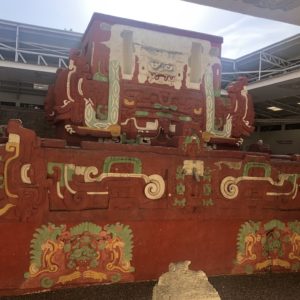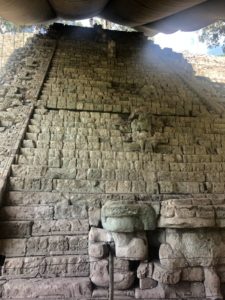Last summer, I visited my native country, Honduras, for the first time in 10 years. Because I did not get to experience a lot of the culture while I was living there during my childhood, my family and I planned a trip across some of the most historically rich landmarks in the country, including the Mayan ruins.
To learn the most during the trip, I knew I would have to complete some preliminary research on my own to acquaint myself with the history and culture in general, which of course meant reading research papers and articles in Spanish. I knew this task would be difficult, because despite the fact that I lived in Honduras for 10 years and had been speaking Spanish at home my entire life, I had never read or written academic work in Spanish.
Whether you are reading sources in other languages, preparing to go abroad for research, or writing for a class or independent work in a foreign language, completing this task will be different than completing an assignment in English. In this post, I will highlight my two biggest take-aways on how to prepare to engage with scholarly work in another language.

Familiarize Yourself With Literature in that Language – When you are reading or writing in a different language, the style in which work is created will likely be different than in English. For example, stylistically with Spanish literature, the readings tend to contain sentences that in English would be considered run-on sentences, which can make it more difficult to follow if you are not accustomed to that particular style. To begin engaging with this work in the context of research, it is important to familiarize yourself with the literary style of the language you are working with. For me, this meant starting out by reading more general books written by Spanish authors, simply to get accustomed to reading in the language. Once I felt comfortable doing that, I began reading more in-depth articles about Mayan culture. Depending on how intensive or demanding your project is, you may have to do more intensive preliminary work. But regardless, it is important to recognize and prepare for the different styles you will encounter.
Practice Your Conversation Skills – Something I wish I had practiced more before my trip is engaging in conversation with professors in the Spanish and Latin American Studies departments. Once I started visiting museums and archaeological sites in Honduras, I started asking the guides numerous questions about everything I was observing. However, once they started speaking in great detail, it was difficult to follow the conversation. Despite the fact that, as I mentioned, I speak Spanish with my family, I was simply not accustomed to this type of conversation. Before you leave for your trip, practice asking questions to your adviser or to professors in the relevant department about your topic in the language that you will be using while abroad. This way, you will begin to practice the language in context.

—
Being currently enrolled in two language courses this semester (SPA 209 and KOR 101), and having taken two years of Portuguese at Princeton, I know I speak each one them with different proficiency. Because I speak English and Spanish fluently, I thought I could comfortably conduct scholarly reading and writing in those two languages. However, after this trip, I realized that fluency is not the only factor when it comes to conducting research in a foreign language; you also have to actively practice critical thinking in that language. For example, given that I spent two years reading, writing, and engaging with Portuguese, I probably would find it easier to conduct research in Portuguese than in Spanish, even though I am not as fluent.
Your ability to conduct research in a foreign language depends on skills that are actively practiced. If you are preparing to go abroad, try to immerse yourself into that language and culture as much as possible before you go.
— Saira Reyes, Engineering Correspondent

